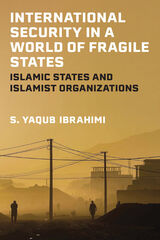
A number of nations, conspicuously Israel and the United States, have been increasingly attracted to the use of strategic barriers to promote national defense. In Do Good Fences Make Good Neighbors?, defense analyst Brent Sterling examines the historical use of strategic defenses such as walls or fortifications to evaluate their effectiveness and consider their implications for modern security.
Sterling studies six famous defenses spanning 2,500 years, representing both democratic and authoritarian regimes: the Long Walls of Athens, Hadrian’s Wall in Roman Britain, the Ming Great Wall of China, Louis XIV’s Pré Carré, France’s Maginot Line, and Israel’s Bar Lev Line. Although many of these barriers were effective in the short term, they also affected the states that created them in terms of cost, strategic outlook, military readiness, and relations with neighbors. Sterling assesses how modern barriers against ground and air threats could influence threat perceptions, alter the military balance, and influence the builder’s subsequent policy choices.
Advocates and critics of strategic defenses often bolster their arguments by selectively distorting history. Sterling emphasizes the need for an impartial examination of what past experience can teach us. His study yields nuanced lessons about strategic barriers and international security and yields findings that are relevant for security scholars and compelling to general readers.

Following the 9/11 attacks on New York and Washington, DC, there has been an increasing interest among scholars, students, and the interested public to study and learn about the Islamist-oriented terrorist organizations called Jihadi Salafi Groups (JSGs). Considering that these organizations emerged in highly fragile states, S. Yaqub Ibrahimi asks: how and why is state fragility linked to the emergence of JSGs?
Ibrahimi bases his study on three events: the establishment of al-Qaeda in Afghanistan in 1998, the rise of Islamic State in the post-Saddam Hussein Iraq, and the failed al-Qaeda effort to establish a base in Saudi Arabia in 2003. These case studies contain major aspects and features of the rise of JSGs and, together, explain the contribution of state fragility to the process of the formation and expansion of these terrorist organizations.
International Security in a World of Fragile States stands out as a pivotal work on the interconnection between the root causes of JSGs and state fragility conditions and their amalgamated role in the formation and evolution of these organizations. It contributes to IR and international security debates by developing a comprehensive but readily understandable narrative of the rise of JSGs in Islamic countries, and examining them in an analytical framework in which their root causes are categorized on individual, group, and international levels.

“[Fanis] demonstrates an impressive ability to travel nimbly between abstract theoretical concepts and a messy reality. In each one of the case study chapters, her analysis is rich, thoughtful, and imaginative.”
—Ido Oren, University of Florida
READERS
Browse our collection.
PUBLISHERS
See BiblioVault's publisher services.
STUDENT SERVICES
Files for college accessibility offices.
UChicago Accessibility Resources
home | accessibility | search | about | contact us
BiblioVault ® 2001 - 2025
The University of Chicago Press









